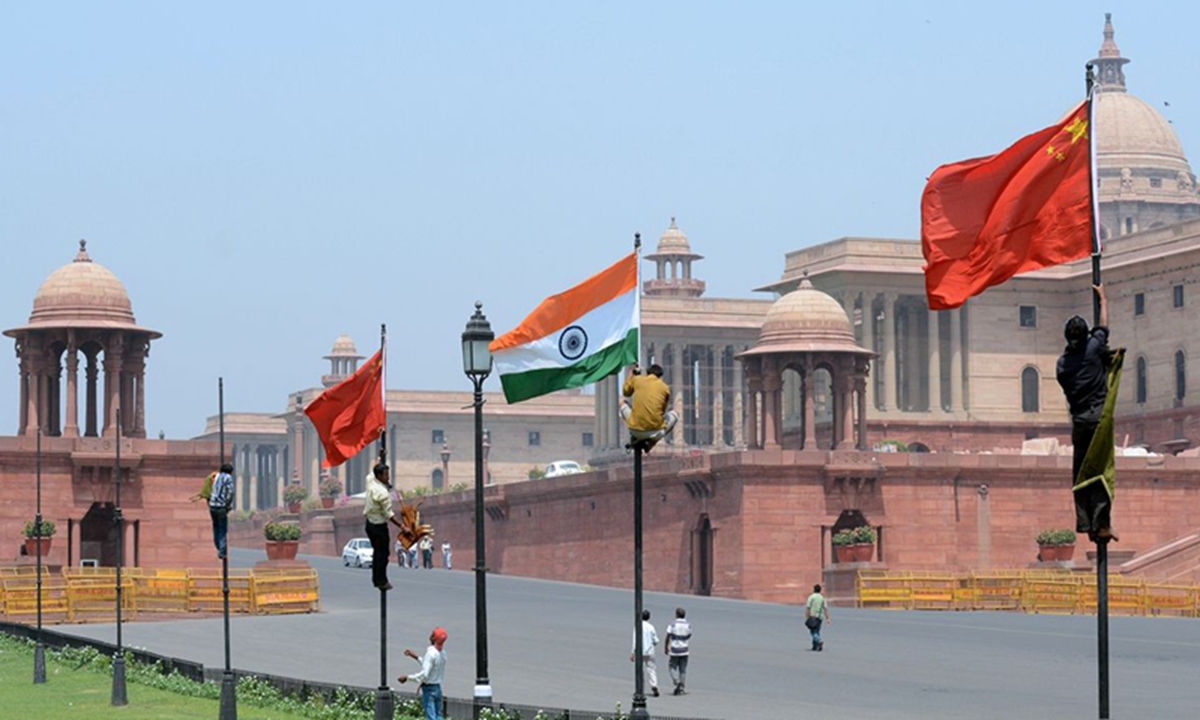India’s infrastructure push shouldn’t focus on conflict
Source: Global Times Published: 2020/11/3 23:02:32

File photo
Amid the border tension between China and India, infrastructure construction on both sides of the disputed border has become one of the focal points of public attention.Specifically, India has significantly stepped up the construction of roads and bridges along its border with China, with its work on critical infrastructure surging nearly 75 percent in regions sharing borders with China and Pakistan in the past two years, according to a report from The Print on Tuesday.
If all these projects were intended for civilian use to improve connectivity in remote areas of western, northern and northeastern India, it would be a welcome development for local economic growth and border stability. However, media reports indicated that new infrastructure facilities like roads and bridges on the Indian side are aimed at the "faster deployment of the military when required," which is obviously not conducive to the easing of the regional situation and may even become a cause of continuing tensions.
According to recent remarks by Chinese Foreign Ministry spokesperson Zhao Lijian on this topic, China "opposes infrastructure building aimed at military contention in disputed border areas. Based on the consensus reached by the two sides recently, neither side should take any action that might complicate the situation at the border region, so that bilateral efforts to ease tension will not be undermined."
Some observers have claimed that there is a "new arms race" between China and India, in terms of infrastructure construction along the disputed border. It is true that China has been strengthening infrastructure progress in its northwestern area. But China's border infrastructure efforts are aimed at accelerating and enhancing overall economic development of the Tibet region. This is because when the local economy is well developed, social stability will naturally contribute to border stability.
Infrastructure construction may illustrate the different mindsets of India and China toward economic development along the border. While China has already recognized the importance of economic development to regional stability, it is regrettable to see that some in India still lack the pragmatic view on improving living standards. One expert in India even claimed that China's poverty reduction in some border villages is a worrisome development to India's defenses.
We sincerely hope that India's border infrastructure push boosts economic development in backward regions instead of escalating tensions. In the long run, if enhanced infrastructure connectivity contributes to a closer economic connection between India's border states and China's Tibet Autonomous Region, it will be beneficial to the development of border trade and supply-chain cooperation, and conducive to stability in the border region and bilateral relations generally.
Posted in: GT VOICE